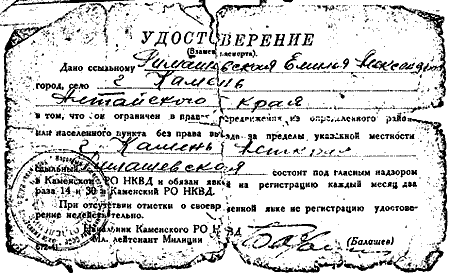| 1 : 1939 - Germany & Russia Attack Poland | 4 : Back to Work | |
| 2 : The Train to Russian Internment | 5 : 1941 - News of Release | |
| 3 : A Stay in Hospital Near to Death | 6 : Imprisoned Again |
6 : Imprisoned Again |
 |
In my cell there were a number of Russians and Uzbekis. One Russian was there because he was fifteen minutes late for work, as his wife was ill. He was proud that his son was a tank commander on the front. Also there was one Uzbek who had killed two of his children and eaten them, then he killed his wife and was caught while boiling her body. He didn't speak Russian and we could only communicate with him through an interpreter, another Uzbek who spoke Russian. If you looked into his eyes, there was no humanity left in them, only a demented animal. I though that he had gone mad from starvation. Very often we heard men being dragged along the corridors screaming and then a muffled sound of a shot, followed by silence. Executions were carried out in the cellars bellow the cells. One Russian told us how some men were selling meat balls to the war evacuees on the trains, until a doctor bought some and after tasting it, got suspicious and took it to Samarkand hospital to have it analysed. It turned out to be human flesh. The gang would entice somebody with promise of bread to come with them and once there, they would kill him or her, mince and cook the flesh, take to the trains full of hungry evacuees and sell it as meat balls. Militia caught the gang, and they might have been some of those who were dragged screaming through the corridors. After some time in that prison we were taken to court. There a proper theatrical performance took place. A proctor stood up and announced: From citizen Frants Polkowski and citizen Zygmunt Chmielewski, I renounce the charges, but citizens Kryger, Moskwa and Bielat, I demand a full sanction of the law. This meant the death penalty. Then another man got up and began to plead on behalf of the three accused. These men, he said, were brought up in a capitalist country and they don't know right from wrong, and he begged the court to be merciful and let these men repay the wrong they have done by joining the army. So the court ordered that they too should be released, but they must leave Samarkand within twenty four hours. So we were all released. Chmielewski and I started walking to Bukhara. We had no food and we lived on weeds, such as meadow sorrel, chickweed, nettles, heads of some thistles and when we were lucky, some desert tortoise eggs, which we sometimes found in the sands of the steppe. Finally we came to Bukhara and found the address where the recruiting office should be, but the house was empty. Only about twenty men were waiting for the office to open. I found and old tin can, gathered some nettles, got some water from the well and began to cook. Then a stray cat appeared. I grabbed it, killed and skinned and cleaned it and added it to the nettles. That made us a really good meal. * * *
After two days a Polish officer, a second lieutenant arrived and led us to the railway station. At that time the Russians were doing their recruiting. They surrounded an area with troops, patrols went in, grabbed anybody they met of the right age and escorted them to the railway station, put them into trucks and took them a few hundred kilometres away, and they were the new recruits. It was no good sending them call-up letters, as Uzbeks would run into the mountains. We too were stopped and our lieutenant, although in Polish uniform, had to show them a special pass. At the station we boarded a train and went to Kermine, where the Polish garrison was staying. We had our first meal not made of weeds. Polish army officers were in attendance. The office was in a tent and we went in one by one. There I presented the slip of paper I had from the labour camp still bearing the name of Polkowski and for the first time I gave my true name Mieczyslaw Arnold Rymaszewski. I was assigned to the 7th division anti-aircraft artillery and was put in the NCO training battery. And whom should I recognize there but the man who robbed me of a little bit of food on the barge on Amudaria, Wladyslaw Rolnicki. I pretended not to recognize him. This spoiled my stay in the army. His brother, Roman, was executed by Russians for stealing a cow. Later on while standing in the queue for lunch I collapsed, and was taken to a doctor who examined me and sent me to an improvised hospital, where I was put on a special diet for two days and I recovered and went back to my battery. All men were weakened by prolonged starvation and about forty of them were dying every day. Diarrhoea and dysentery were taking their toll. Bodies were put in a mass grave and covered with chlorine for quick decomposition. * * * |
June - July 1942. Remaining units of General Anders Army in Uzbekistan, USSR, awaiting their turn to get out of the hell of the Soviet Union. Little food, epidemics, no arms, little equipment and ammunition. However, we had morale boosting new battle dresses, instead of rags, and real leather boots (superior to cheap Red Army's boots, often made of canvas). This was supplied by the British especially for the Polish army. PHOTOS: Army training Soviet style — wooden rifles and make-believe artillery. |
|
|||
Training was gradually increasing as men were getting stronger. Our commanders asked the Russians for transport to Persia (Iran) where we could join British troops, but the Russians kept refusing. A Russian major came over to persuade the Polish major, representing the Polish garrison command, to stay with the Russian army. When the Polish major refused, the Russian had shot him. The sentry who stood outside the office shot the Russian major. The Russians then demanded that the sentry should be shot for killing the Russian officer. Polish command said he was doing his duty by defending his officer and refused to carry out the Russian demand, but he had to be confined. We were all put on red alert. All the ammunition provided for training was put in belts, we slept fully dressed, ready to march to Ashkhabad to get to Iran. The Russians realised that we were determined, and they did not have enough forces in the region to stop us, so they agreed to provide transport. EVACUATION TO PERSIA AND ACTIVE WAR SERVICE Soon we got the train to take us to Krasnovodsk, on the Caspian sea. There we boarded some rusty old ships. I was on ship called "Gruzavik" (loader). Diarrhoea was still prevalent and many men were dashing to the sides of the ship with their trousers down, as the sanitary arrangements were not sufficient. There was little fresh water aboard and they were distilling sea water non stop. Everybody was dehydrated and we had to stand in the queue to get some water which was always warm. Once, while waiting for my ration of water I saw a pair of bright little eyes looking at me through the gaps in the steps and a child said ... Mum, it's Mietek. That was little Krystyna Martusewicz, daughter of Wladyslaw Martusewicz, station master of Malkowicze, who, I found out later, was murdered by Russians in Katyn. Next Mrs Martusewicz appeared and after a greeting, she told me that she was deported to Siberia together with my mother and she gave me my mother's address: Altayskiy Krai, Gorod Kamien' na Obi. We landed at Pahlavi in Iran. There we had to strip, have a shower, a haircut, be powdered with insecticide and were issued with new tropical uniforms. Our old uniforms were put into a heap and burnt. We could see how skinny we were. We had our first real meal and marched to the camp. Along the way to the camp the Iranians had stalls full of fruit and everybody's eyes were on them, as Australian crews were filming us.
My unit was reorganised and became the 8th heavy anti-aircraft regiment. We received our new guns and began intensive training. I was appointed as a driving instructor for a time. Soon we were posted to Habbaniya, on defence of the airport. Next we were posted to Kirkuk and from there to Palestine via Jordan. In Palestine we were stationed at Hill 69, near Rehovod. While staying there I sent a parcel to my mother through an agency in Rehovod, which she did receive. ITALY Our next move was to North Africa. Finally we were assembled at Cassasin in Egypt, awaiting embarkation for the front in Italy. After the battle of Monte Cassino our infantry units lost a lot of men and there was an appeal for volunteers to transfer to the infantry. I volunteered and joined the 3rd Karpathian Brigade. I was wounded on 21 June 1944 in the battle on the river Kenti. After some time in hospital near Taranto, I was transferred to a Polish hospital Number One in Taymouth castle, near Aberfeldy, Pertshire, Scotland. Later on to convalescents depot Peebles, before returning to Italy. In Italy, after the war ended, my battalion was posted to guard German POW's, including 10,000 SS men at Rimini, on the coast of the Adriatic sea. |
ITALY
: April-July 1946. |
|
|||
ENGLAND Next we were brought to England
to be demobbed. I Soon I was discharged from the army and was working for the Forestry Commission. In 1956 I went to Canada for a few months. On my return I went back to work for the Forestry Commission, but in a different department. In 1963 my mother, repatriated to Poland after the war, came to England and stayed with me for five months. I met her in London at Liverpool station. After 24 years she did not recognize me and I was not sure about her. The last time I saw her was in 1939. The Russians had deported her and my younger brother, who was only six years old, and my grandfather who was 65 years old. In Siberia she worked in a factory and my grandfather worked on the river Ob, floating timber, may be even the timber which I was pulling out further North. When he no longer could work, they took him out into the desert and left him there to die. Some children who were looking for some edible weeds found him and told my mother where he was. She got some of her friends and an improvised stretcher and brought him to her hut. She tried to feed him, but he no longer could swallow. At that time my younger brother ran in shouting - letter from from Mietek, letter from Mietek! Tears ran out the old man's eyes, but he no longer could speak. He died shortly afterwards. My mother also told me that my father had escaped from the POW camp and when the Germans overrun Russian territory where he was in 1941 he went to Malkowicze and lived in our house. When the Russians came back there in 1945, they tracked him down and imprisoned him. He died in their prison. |
||||
UDOSTOVERENYE
- CERTIFICATE Issued to deportee-convict Rymashevskaya Emilya Aleksandrovna (Emilia Rymaszewska the daughter of Aleksander) in town Kamien na Obi of the Altayskiy Krai, to say that she is limited in the rights of movement from the allocated area and she has no right to travel outside of the limits of the said area of Kamien, Altkrai. The deportee-convict Rymaszewska is under public supervision of the District Office of the NKVD and is obligated to present herself for registration twice every month on the 14th and 30th in Kamien's DO NKVD. In case of failure to appear for the registration in the proper time this certificate becomes invalid. Chief of Kamien's
DO NKVD |
At the end of the war, my mother after return to Poland, was settled down near Biernatowo in Western Poland. POLAND I went to Poland in 1988, after 49 years absence, and was most disappointed to see what had happened to the character of the nation. Material damage could be put right within a decade or two, but moral scars will last for generations. Bolshevik Russia has exploited the countries under their domination and poisoned their character. When traveling from Wroclaw to Poznan I met a fellow who came from Baranowicze and now was managing a factory making machines for export to Russia. The Russians were paying for them with steel. But when the Russians asked what steel would be used for machines, and were told - the steel you provide, they said no. You shall use Swedish steel. Because Swedish steel is 60 percent pure and Russian only 30 percent pure. So Poland had to pay more for steel than they got for the machines. Poland was making good progress with electronics. Russia decided that electronics factories should be transferred to Rumania. Poland lost her factories and Rumania couldn't use them, because it takes a long time to change a farm worker to an electronic engineer. In the meantime they all had to buy televisions and other electronic goods from Russia and paying them for it through the nose, for inferior goods. All this generated a lot of anger in me, but who should I direct my anger against? The people of Russia? But among them are Dr Zagumionnyi, Lena Vasilevna, the couple from Kyzyl desert, Ganiyev Turiniaz and millions of other victims of the communist evil regime. It was a band of power drunk men who were prepared to murder, enslave and starve people into submission, while they themselves were living in luxury surrounded by servants. And now these same men are running the Russian Mafia. Mieczyslaw
A. Rymaszewski
|
|
| 1 : 1939 - Germany & Russia Attack Poland | 4 : Back to Work | |
| 2 : The Train to Russian Internment | 5 : 1941 - News of Release | |
| 3 : A Stay in Hospital Near to Death | 6 : Imprisoned Again |

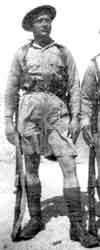 Soon
we left Iran and were posted to Khanaqin in Iraq, on defence of refinery.
I wrote a letter to my mother. She received it and I got an answer,
but the letter was censored.
Soon
we left Iran and were posted to Khanaqin in Iraq, on defence of refinery.
I wrote a letter to my mother. She received it and I got an answer,
but the letter was censored.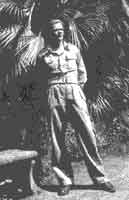
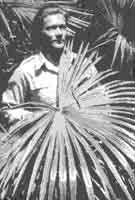
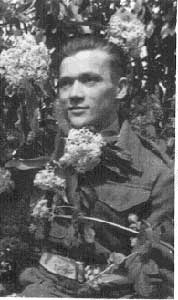
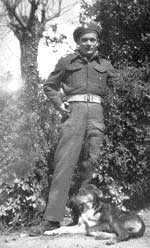 was
posted to Polish Resettlement Corps Records Office to work as a clerk
in the Relegation to Reserve department.
was
posted to Polish Resettlement Corps Records Office to work as a clerk
in the Relegation to Reserve department.
